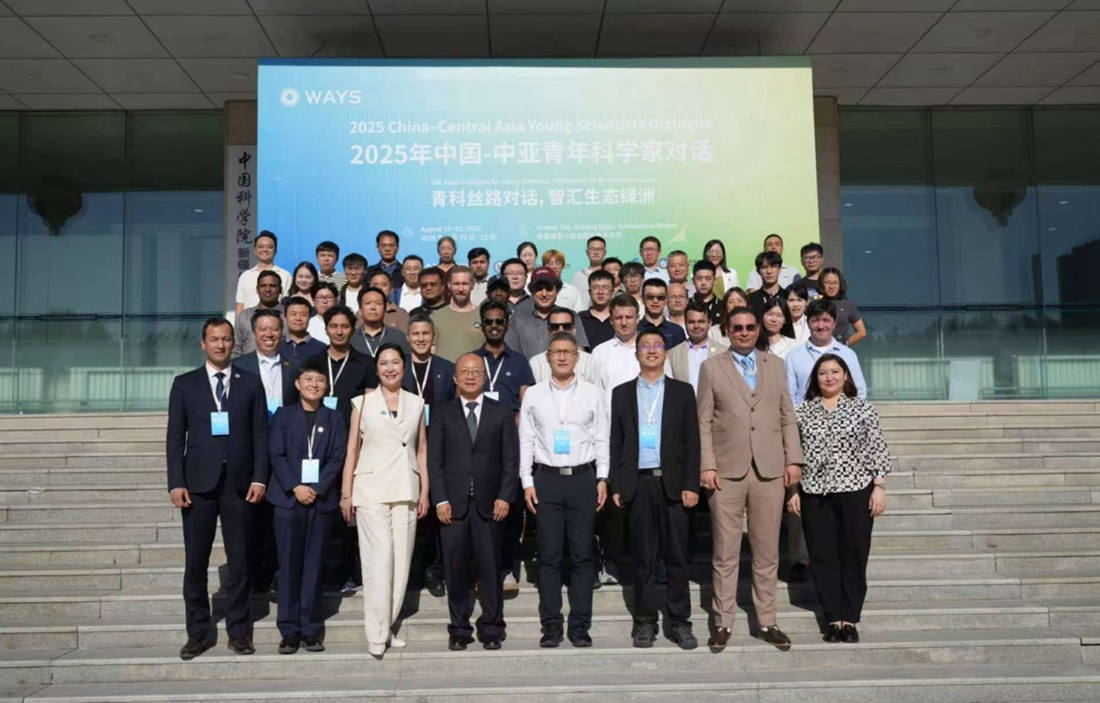Young Scientists from China, Central Asia call for regional cooperation



Young scientists from China and Central Asian countries issued a joint statement calling for increased scientific cooperation to advance sustainable development during a four-day dialogue that concluded Aug. 22 in northwest China's Xinjiang Uygur autonomous region.
The 2025 China–Central Asia Young Scientists Dialogue, held Aug. 19-22 in Urumqi, brought together 120 researchers and representatives to discuss regional innovation under the theme "Silk Road Dialogues for Young Scientists, Intelligence for an Ecological Oasis."
The World Association of Young Scientists and the Xinjiang Institute of Ecology and Geography of the Chinese Academy of Sciences co-hosted the event with support from the China Association for Science and Technology Youth Science Center and the Kazakhstan Branch Campus of Northwestern Polytechnical University.
On Aug. 20, participants issued the China–Central Asia Science Cooperation for Sustainable Development Urumqi Consensus, calling for multilateral collaboration to advance the U.N. Sustainable Development Goals through scientific innovation. The statement emphasized harnessing artificial intelligence and digital technologies for regional growth, while establishing long-term cooperation mechanisms and youth exchange platforms.
During the keynote session, young scholars from China and Central Asia presented their latest findings. Madina Mansurova spoke about AI's role in youth engagement and sustainable development. Chen Fang discussed digital technology applications in ecological conservation, while Osama Abusaud presented research on plant-microbe interactions in arid regions for sustainable agriculture.
Panel discussions covered AI, nomadic wisdom and biodiversity conservation. Young scientists addressed regional challenges such as growing resource demands, environmental degradation and water distribution issues across Central Asia.
The dialogue was part of the 2025 China–Central Asia Science and Culture Exchange series and was included in the Global Civilizations Dialogue Ministerial Meeting action plan adopted in July.
Organizers said the event provided a practical platform for collaboration between young scientists from China and Central Asia while adding fresh momentum to building regional innovation networks and a sustainable future under the Belt and Road Initiative.